Jan. 6 witnesses speak of relying on faith to do the right thing
Multiple witnesses appearing before the Jan. 6 committee have spoken about how they relied on their faith to resist pressure from then-President Donald Trump and his allies — and even their own friends — to aid Trump’s plot to steal the 2020 election after he lost to Joe Biden.
“My faith really sustained me through it,” Greg Jacob, who served as legal counsel to then-Vice President Mike Pence, said of the events of Jan. 6, 2021.
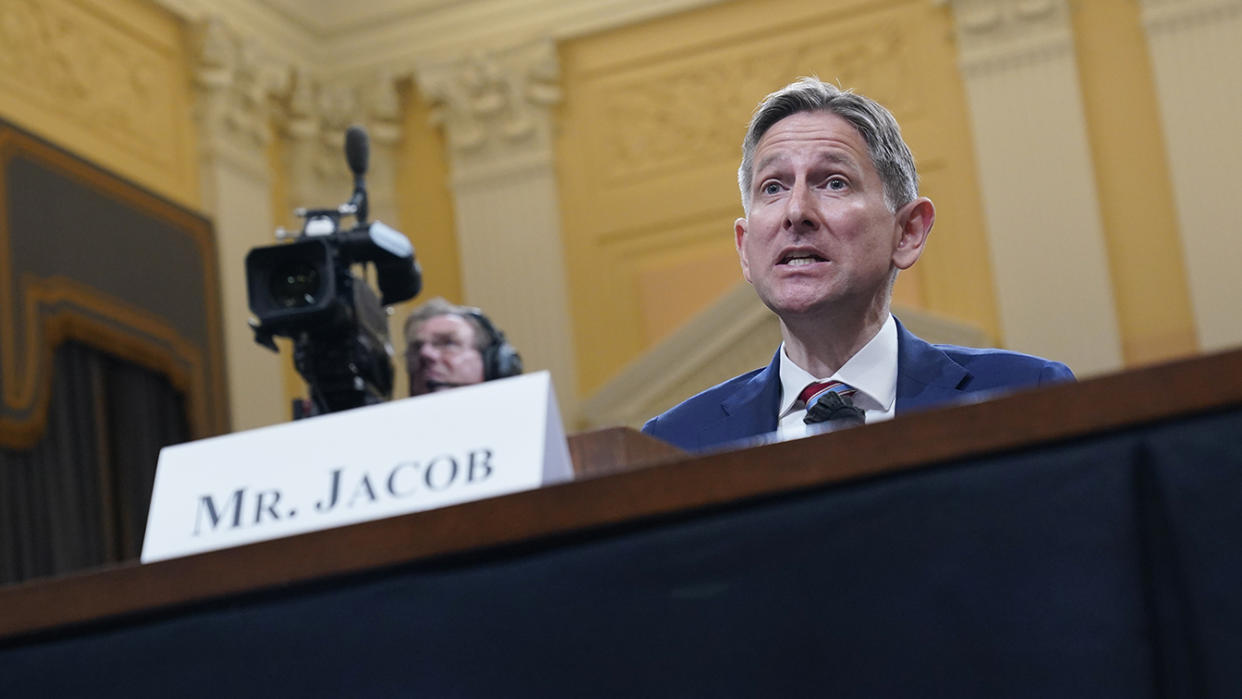
Jacob, a Christian, told the Jan. 6 committee that while a violent mob of Trump supporters invaded and ransacked the U.S. Capitol, chanting that they wanted to hang Pence, he was with the vice president and a few other aides in an underground parking garage. Secret Service agents swarmed around their black SUVs, keeping the engines running for a quick escape.
Jacob pulled out his Bible and flipped to the Book of Daniel. “Daniel 6 was where I went,” Jacob said. “In Daniel 6, Daniel has become the second in command of Babylon, a pagan nation, but he completely, faithfully serves. He refuses an order from the king that he cannot follow, and he does his duty consistent with his oath to God. And I felt that’s what had played out that day.”
Reading the story, Jacob said, gave him “great comfort” amid extremely difficult circumstances.
Pence’s closest adviser, Marc Short, has also told the committee about how he, Jacob, Pence and two other aides gathered for prayer the morning of Jan. 6.
“Knowing it would be an important day, we gathered in prayer,” Short said. The group “asked for guidance and wisdom, knowing that the day was going to be a challenging one.”
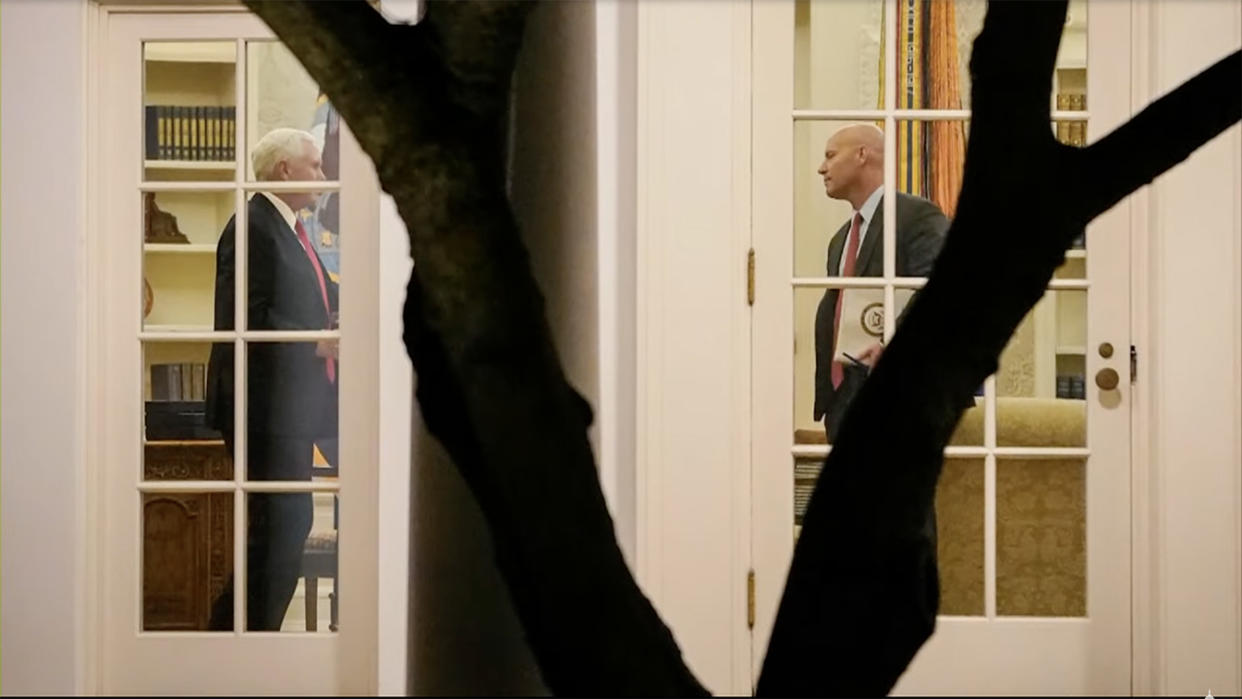
Nearly 24 hours later, after rioters had been cleared from the Capitol, and after Congress had resumed and finished its work of certifying the election results, Short and Pence returned to the touchstone of their shared Christian faith.
“At 3:50 in the morning when we finally adjourned and headed our own ways, I remember texting the vice president a passage from 2 Timothy 4:7 about ‘I fought the good fight, I’ve finished the race, I’ve kept the faith,’” Short said.
This week Arizona’s House speaker, Rusty Bowers, spoke about the pressure he came under from Rudy Giuliani and Trump supporters after the 2020 election. The president’s personal lawyer wanted Bowers to take procedural steps that would aid Trump’s plan to ignore the will of the people and replace members of the Electoral College with electors who would support Trump.
But Giuliani, Bowers testified under oath, was operating out of a different kind of faith, one that believed fraud had happened and was searching for any evidence to justify that belief.
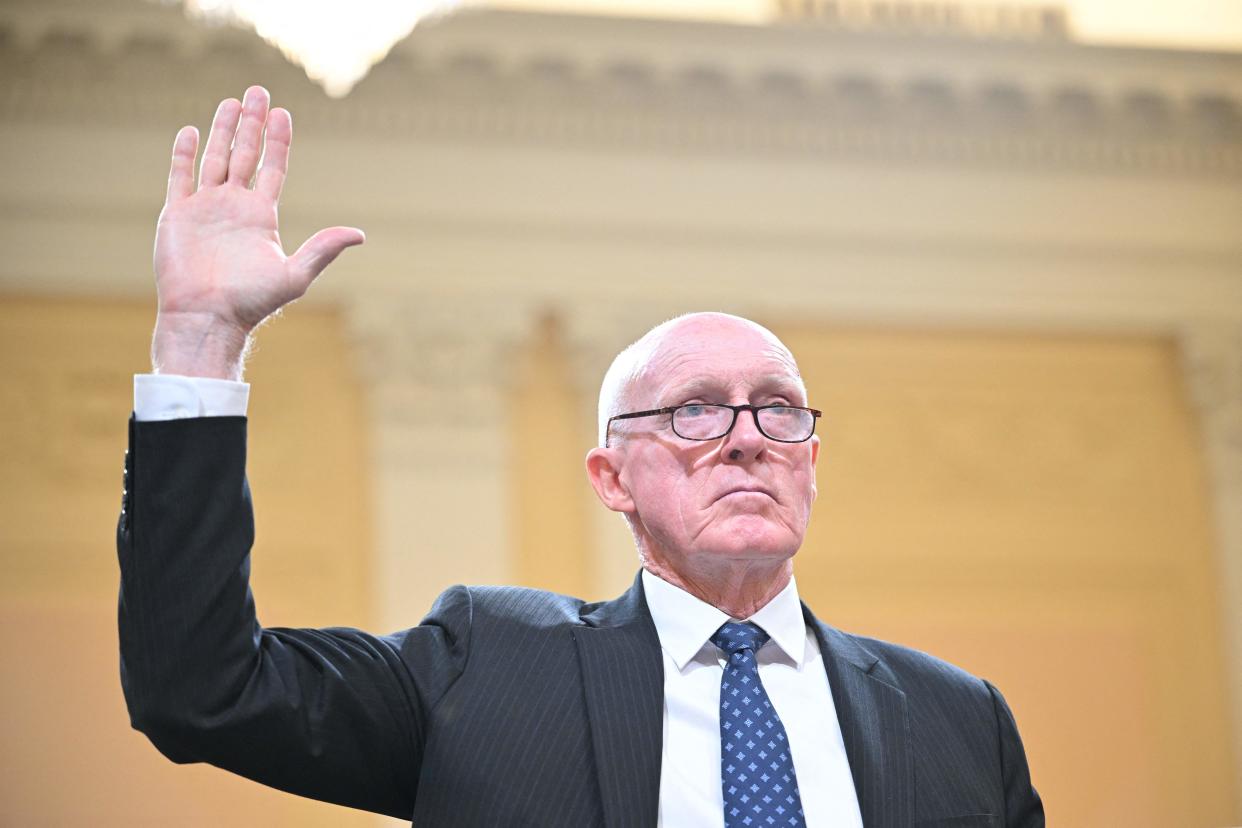
“My recollection [is Giuliani] said, ‘We’ve got lots of theories. We just don’t have the evidence,'” Bowers said.
Bowers, who is a member of the Church of Jesus Christ of Latter-day Saints and who said he voted for Trump and wanted him to win the election, spoke of a faith that stood in stark contrast to Giuliani’s. Rather than using blind faith to grasp for an outcome he wanted to be true, Bowers relied on his religious faith to accept facts he didn’t like and to do his duty despite a barrage of harassment and threats to him and his family.
At Bowers’s home, Trump supporters, some bearing firearms, drove back and forth with “panel trucks with videos of me proclaiming me to be a pedophile and a pervert and a corrupt politician and blaring loudspeakers in my neighborhood and leaving literature ... arguing and threatening with neighbors and with myself,” he said. “At the same time ... we had a daughter who was gravely ill, who was upset by what was happening outside.”
Bowers’s adult daughter died not long after this, on Jan. 28, 2021, “after fighting illness for a long period,” he wrote at the time.
During his testimony, Bowers read from a journal entry, his voice sometimes quavering.
“It is painful to have friends, who have been such a help to me, turn on me with such rancor,” he wrote in December 2020.
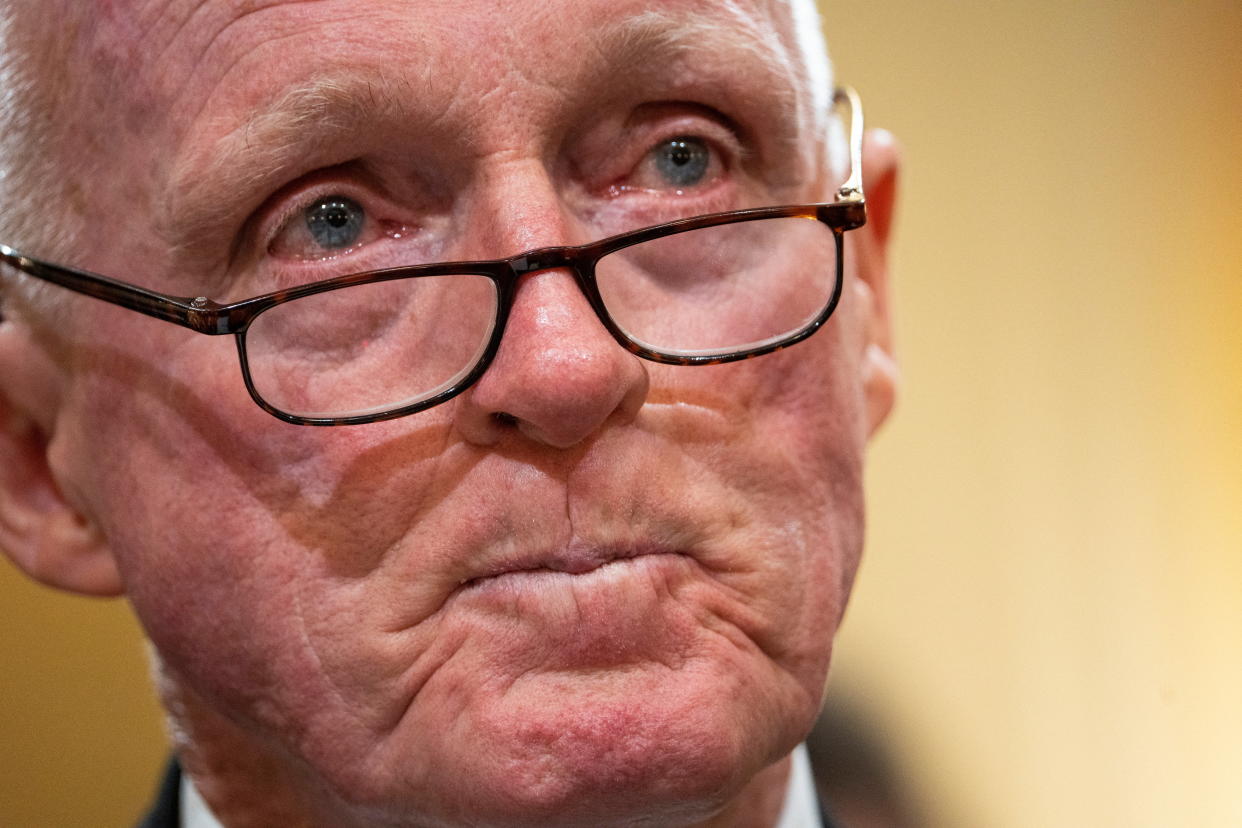
“I may, in the eyes of men, not hold correct opinions or act according to their vision or convictions, but I do not take this current situation in a light manner, a fearful manner or a vengeful manner. I do not want to be a winner by cheating. I will not play with laws I swore allegiance to.”
Bowers wrote that he was guided by his “deep foundational desire to follow God’s will, as I believe he led my conscience to embrace.”
“How else will I ever approach him in the wilderness of life, knowing that I ask this guidance only to show myself a coward in defending the course he led me to take?” he wrote.
The faith of Bowers and Pence and his aides, a determination to do one’s duty despite one’s preferences and in full light of known facts, stood in stark contrast to the way Trump supporters believed there was fraud despite the lack of any evidence.
Gabriel Sterling, the chief operating officer of elections in Georgia, told the committee about an attorney he knew who refused to believe Trump lost. When talking to the attorney, Sterling explained “five or six things” that were false claims made by Trump, and each time, the lawyer said, “OK, I get that.”
“But at the end he goes, ‘I just know in my heart they cheated,’” Sterling said.
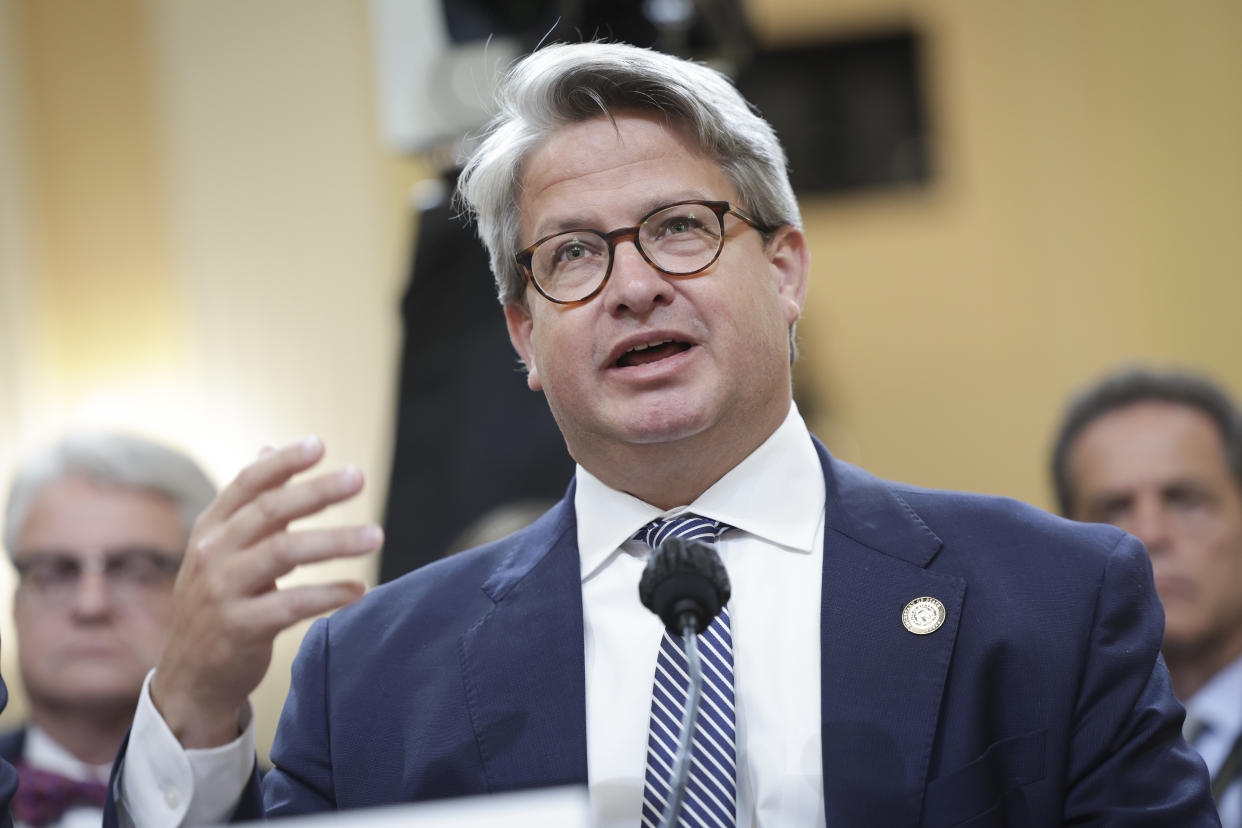
This kind of fact-denying faith was on display by prominent Trump supporters in the days after the 2020 election as well.
“So who cares what I can prove in the courts? This is right. This happened, and I am going to do anything I can to uncover this horror, this evil,” Eric Metaxas, an evangelical talk radio personality, said in December 2020. Metaxas made clear that he indeed meant that Trump supporters should do anything.
“We need to fight to the death, to the last drop of blood, because it’s worth it,” he said.
Rod Dreher, a conservative writer who is friends with Metaxas, wrote at the time, “He is declaring as a matter of faith that Donald Trump won the election. How can you argue with that? You can’t. It is a statement of faith. ... This is fanaticism.”
Religious leaders also voiced such “fanaticism” at the time, seeking to use their faith to make things true they wished to be true. Pentecostal leader Lou Engle called on Christians to “give themselves to fasting and praying, crying out for the exposure of voter fraud.”
Engle, who helped organize a recent gathering of over 50,000 young people in Kansas City, Mo., said he believed demons were perpetrating the cheating. “I believe there are spiritual powers in heaven and on earth who are moving in corruption and in fraud,” he said the day after the 2020 election.
Such evidence-free faith in political outcomes is still showing up. Jan. 6 committee Chairman Bennie Thompson on Tuesday read the comments of a county commissioner in New Mexico, Couy Griffin, who refused to certify the results of a recent primary election because of his belief that the results were marred by fraud.
“My vote to remain a ‘no’ isn’t based on any evidence, it’s not based on any facts. It’s only based on my gut and my gut feeling and my own intuition and that’s all I need to base my vote on the elections right there,” said Griffin.
Griffin has said he was a pastor before entering politics, and also served 20 days in jail for trespassing on the U.S. Capitol grounds on Jan. 6. He has said he is “devoted to the Lord” and that on Jan. 6, “my actions were taken as the result of my faith.”
But Pence, in a speech to conservative lawyers in February of this year, spoke of a religious faith that does not seek to bend reality to its will for the sake of power or self-preservation. Rather, he said, the role of faith was to empower him to do the right thing even when it was difficult.
“Look, I understand the disappointment many feel about the last election. I was on the ballot,” Pence said with a chuckle. “But whatever the future holds, I know we did our duty that day. And John Quincy Adams reminds us, ‘Duty is ours, results are God’s.’”
